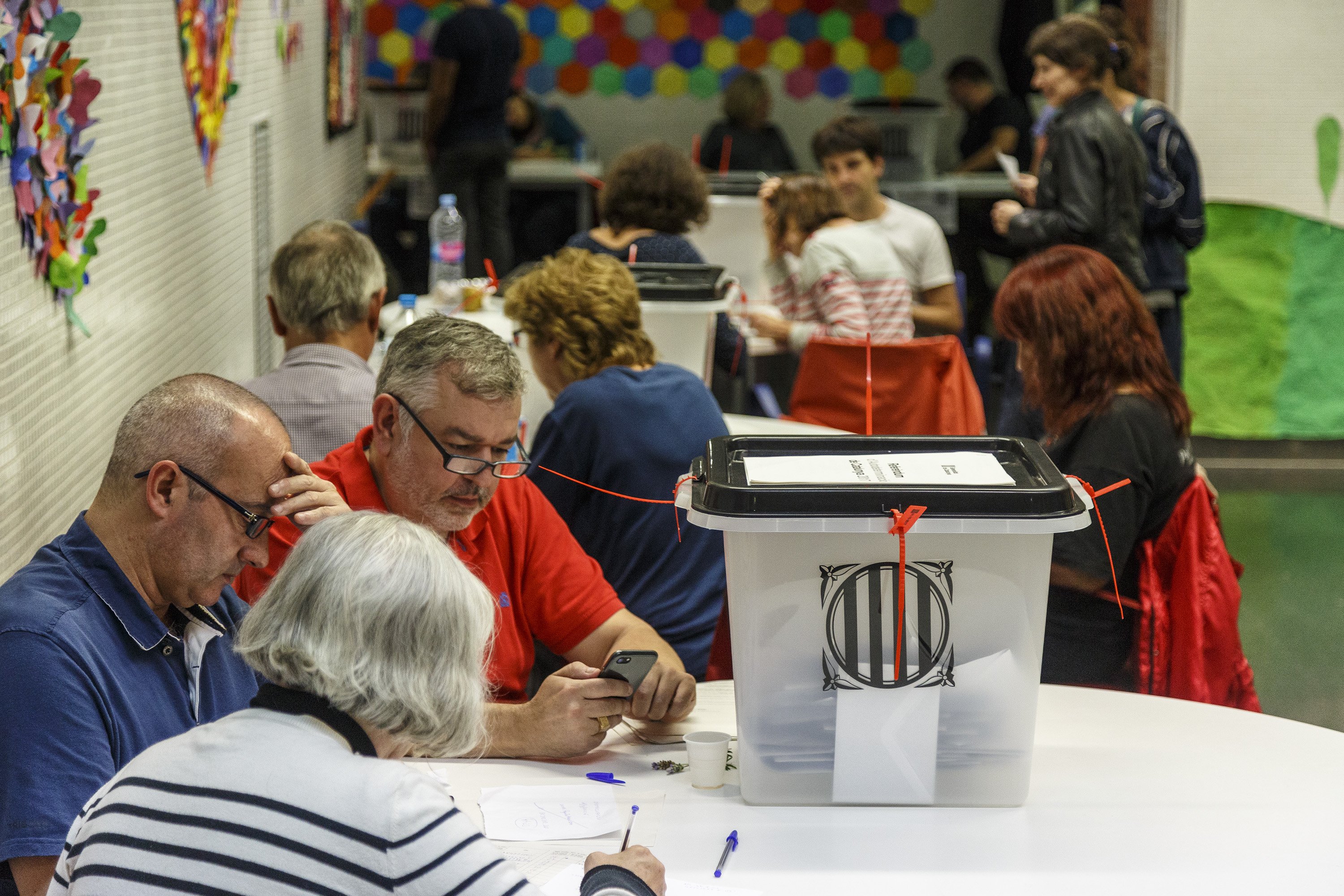In the yet-to-be-sentenced court case of the five electoral commissioners appointed to oversee the fairness of Catalonia's 2017 referendum, the defence has today presented the judge with a press interview in which the president of the Spanish Constitutional Court, Juan José González Rivas, states that the defendants "scrupulously complied" with the requirements of the court he heads.
In a letter, to which the EFE agency has had access, the lawyer to the five, Ramon Setó, has asked the judge of Criminal Court number 11 of Barcelona to admit the interview as documentary evidence and take it into account in his verdict, which has not yet been handed down, although the trial has concluded.
The electoral commissioners appointed by the Catalan Parliament for the referendum of 1st October 2017 - Jordi Matas, Marc Marsal, Marta Alsina, Tània Verge and Josep Pagès - were tried in March in a trial in which public prosecutors called for sentences of two years and nine months in prison for the offences of disobedience and usurpation of office.
The five defendants, all of them academics and lawyers linked to university spheres, were appointed on September 7th, 2017 by Parliament as members of the electoral commission for the referendum due three weeks later, with the mission of overseeing the transparency and fairness of the independence vote, although they resigned 19 days later, following the Constitutional Court's imposition of coercive fines of 12,000 euros a day on each of them.
Although the trial is ready for sentencing, the defence lawyer for the commissioners has just become aware of the interview with the presiding judge of the Constitutional Court, published in September 2018 in Escritura Pública, the official magazine of Spain's General Council of Notaries.
In this interview, states the defence brief, judge González Rivas comments on the 2015 legal reform to the Constitutional Court and recalls that the court's power to impose coercive fines has been used only on one occasion, "before the people who held unrecognized office in the so-called electoral commission of Catalonia".
"These coercive fines led to the people in question scrupulously complying with the requirements of the Constitutional Court," González Rivas continues in the interview presented to the court.
For the defence, it is "extremely important" that the president of the Constitutional Court has stated that the commissioners complied with his orders: "If they scrupulously complied with the requirements, then they did not disobey and therefore there is no offence," he added in the letter.
The lawyer has appealed to Spain's Civil Procedure Law, which allows evidence to be presented after the trial has been held, as long as it concerns new facts.
"It is therefore appropriate to admit the accompanying documentary evidence, as it is new (known today) and of absolute relevance and usefulness in the case of statements about the essence of the crime of disobedience made by the president of the Constitutional Court," Setó asserts in his brief.
The criminal judge must now decide whether to accept the new evidence presented by the defence lawyer.

